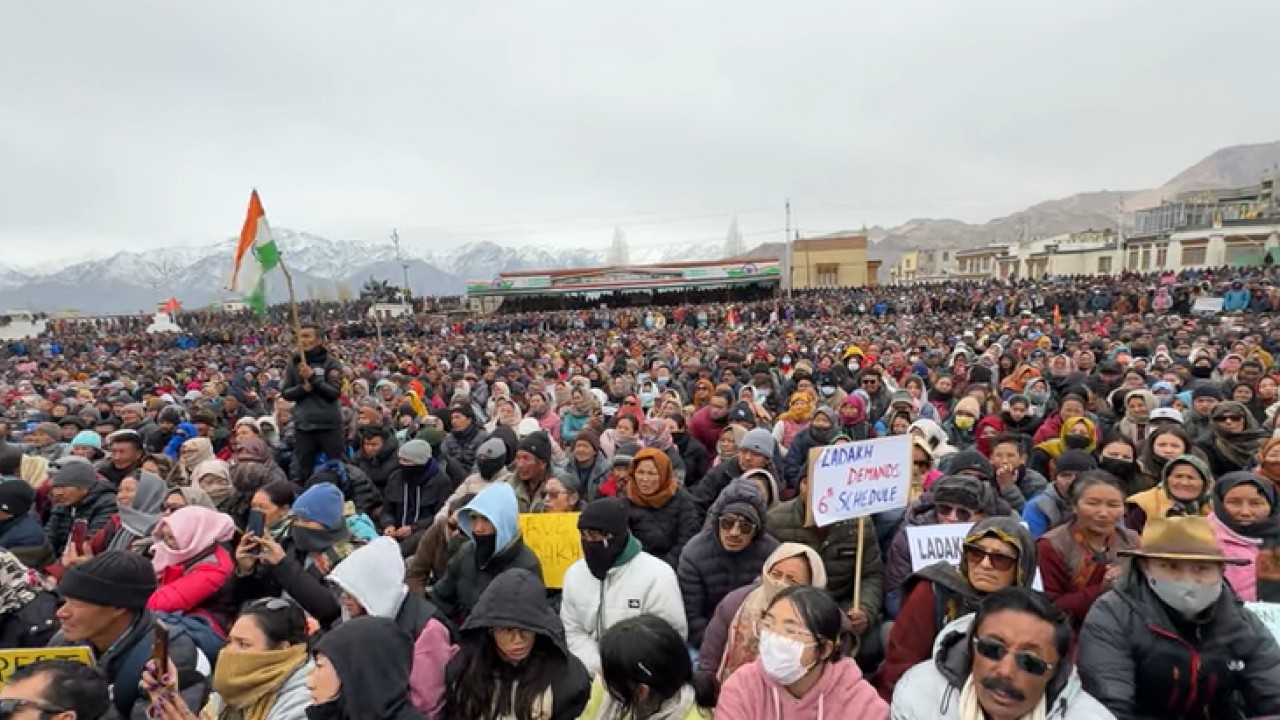
X/@arnabguha245
Ladakh witnessed a complete shutdown on Saturday, as thousands of men and women took to the streets, demanding statehood and constitutional protections under the sixth schedule for the Union Territory. The protest was jointly organised by the Leh Apex Body and the Kargil Democratic Alliance.
The protest took place in freezing temperatures. The protesters frequently shouted slogans demanding Ladakh's statehood, implementation of the sixth schedule, and the establishment of separate parliamentary seats for Leh and Kargil districts.
LADAKH KI AKHIRI MANN KI BAAT
— Sonam Wangchuk (@Wangchuk66) February 3, 2024
3rd Feb saw Ladakh's biggest ever rally for restoration of democracy & Safeguards under 6th Schedule of constitution
20,000 people, quarter of Leh Ladakh's adult population gathered
WATCH FULL VIDEO: https://t.co/eDLhcuifR6#6thSchedule #democracy pic.twitter.com/A3fjYxnE4r
Despite the Centre's announcement of a second round of talks with representatives from the Leh Apex Body and Kargil Democratic Alliance, the region stood still in solidarity with the protesters. Earlier, the center constituted a high-powered committee, led by Minister of State (Home Affairs) Nityanand Rai, to address the demands put forth by the people of Ladakh.
Unprecedented rally in Ladakh for #statehood and #sixthschedule.
— Mustafa Haji (@Mustafa_haji_) February 3, 2024
Hope the government of the day will full fill their promise of empowering Ladakh. pic.twitter.com/hRnx2y3r58
The people expressed their discontent with what they perceived as unending bureaucratic rule in the Union Territory, asserting that only full statehood where they are allowed to elect their representative. The call for statehood gained momentum over the past two years, with the people of Leh and Kargil jointly voicing their opposition against what they viewed as political disenfranchisement by the Centre.
In December, the Centre initiated its first meeting in Ladakh, urging representatives from Leh and Kargil to submit their demands. The region became a separate Union Territory in August 2019 after the abrogation of Article 370, which led to the bifurcation and downgrade of the erstwhile state of Jammu and Kashmir into two Union Territories.
Over the last two years, residents of Leh and Kargil felt a sense of political disempowerment which prompted their collective uprising against the Centre. The protests, occurring over the last two years, emphasise the locals' demand for statehood and constitutional guarantees to safeguard their land, employment, and distinct identity, rights which they enjoyed under Article 370.





Copyright © 2026 Top Indian News
